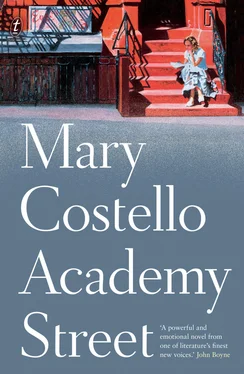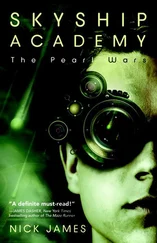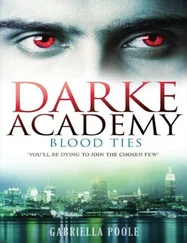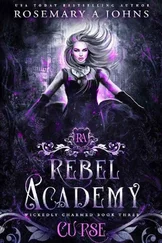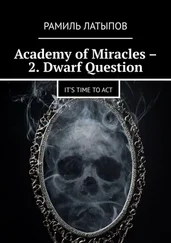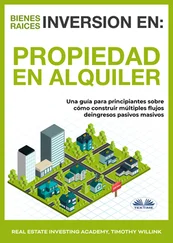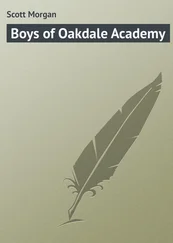Mary Costello - Academy Street
Здесь есть возможность читать онлайн «Mary Costello - Academy Street» весь текст электронной книги совершенно бесплатно (целиком полную версию без сокращений). В некоторых случаях можно слушать аудио, скачать через торрент в формате fb2 и присутствует краткое содержание. Год выпуска: 2014, Издательство: Text Publishing Company, Жанр: Современная проза, на английском языке. Описание произведения, (предисловие) а так же отзывы посетителей доступны на портале библиотеки ЛибКат.
- Название:Academy Street
- Автор:
- Издательство:Text Publishing Company
- Жанр:
- Год:2014
- ISBN:нет данных
- Рейтинг книги:3 / 5. Голосов: 1
-
Избранное:Добавить в избранное
- Отзывы:
-
Ваша оценка:
- 60
- 1
- 2
- 3
- 4
- 5
Academy Street: краткое содержание, описание и аннотация
Предлагаем к чтению аннотацию, описание, краткое содержание или предисловие (зависит от того, что написал сам автор книги «Academy Street»). Если вы не нашли необходимую информацию о книге — напишите в комментариях, мы постараемся отыскать её.
J.M. Coetzee
Academy Street This is an intimate story about unexpected gifts and unbearable losses, and the perpetual ache for belonging. It is exquisitely written and profoundly moving.
Academy Street — читать онлайн бесплатно полную книгу (весь текст) целиком
Ниже представлен текст книги, разбитый по страницам. Система сохранения места последней прочитанной страницы, позволяет с удобством читать онлайн бесплатно книгу «Academy Street», без необходимости каждый раз заново искать на чём Вы остановились. Поставьте закладку, и сможете в любой момент перейти на страницу, на которой закончили чтение.
Интервал:
Закладка:
She slept poorly, recalling, in the middle of the night, a cake Claire had once baked for her birthday — a sponge cake with cream and jam, the only birthday of hers that had ever been remembered. She woke to a watery winter light and a terrible silence in the apartment and when she could no longer bear it she rose and went out in the rain for the newspaper. She made coffee and read The New York Times at the table. A young heiress had been kidnapped — taken from her apartment in San Francisco. She turned the pages, read a review of a restaurant, gazed at photos of homes and gardens, and then, near the end, as if fate had cruelly decreed it that lonely morning, she turned a page to find David’s smiling face, a radiant bride by his side, and underneath, a notice.
Bianca Rodriquez and David O’Hara were married in Holy Cross Church in Manhattan on December 29th, followed by a reception at the Silver Springs Country Club in Rochester. The bride, 29, is the daughter of Mr and Mrs Paolo Rodriquez, Lima, Peru, and a senior stewardess with Pan Am Airlines. The bridegroom, 35, is an associate at the Manhattan law firm Goldberg and Levine where he specializes in corporate law.
It was to Willa she turned. She stood in her friend’s kitchen that evening and opened her purse and silently handed her the clipping. Willa was serving up the evening meal. She paused, read it, and, without uttering a word, went on ladling out food to her husband and children and Theo at the table. Then she touched Tess’s arm lightly and got her coat. They walked along the street, their heads bent close. They sat in a diner until their coffee grew cold. Tess told her friend everything: the dead mother, the dead sister, the childhood, the man. In the telling it did not seem so bad. She even laughed at times. It was not that it was funny, but neither was it tragic. It was as if she were recounting someone else’s life, from long ago.
12
ONE SUNDAY MORNING when he was fourteen he walked into the kitchen and stood before her.
‘Who is my father?’ he asked.
He stood still. She had rehearsed this moment many times before sleep. But she was not prepared for the iron grip that fastened on her heart now, the trapdoor she fell through. He would abandon her. He would enter a new life. He would enter a ready-made family with a house in the suburbs and a lawn and a pool and beautiful friends. She saw it all. An education, too. He would reclaim the father she had deprived him of. She had done too little. She should have found his father, insisted he play his part.
‘I will tell you his name when you are eighteen. I did not know him long, but I loved him. I cannot say if he loved me.’ He held her look, then turned and left the room.
She had often, over the years, pored over the newspaper clipping of the wedding notice. They were both beautiful. The bride’s exotic eyes, her lustrous hair, the groom’s allure. Tess looked at her own pale freckled arms, her rural hands, and felt insignificant. She gazed at their faces, searched the bride’s eyes, her confident pose, looked at her for a long time. Something began to take hold, and clarify. Slowly it came to her that this was the only kind of woman he could have chosen — sanguine, self-assured, with a centre of her own. She would not want to climb behind his eyes or probe his silence or know its source. In that instant Tess saw their life together, his silence, her acceptance, and she felt a sudden gratitude to this woman, this stranger. She would let him be.
One night her aunt Molly passed away in her sleep. Tess and Fritz followed the coffin down the church aisle, and she and Theo rode with him in the funeral car out to Woodlawn Cemetery. She looked out at the streets and houses going by. She had been in the country for fifteen years, some tumultuous times. She had lost Claire and now Molly, her father and Mike Connolly were gone too, and she did not know where Oliver was. Her collection of mortuary cards was growing. She sent word of Molly’s death home to Ireland. Her sisters’ replies, in turn, offered condolences and glimpses of their own lives occupied with raising families and earning a living. Occasionally, on hearing that the Gallaghers or the O’Dowds or other Irish neighbours were making a visit back, Tess felt a little twinge. It was an ache for the place, more than the people, and for a past that was bound to others, some now gone. She was not certain that a visit home would sate that ache, and year by year it grew harder to imagine a return.
Sometimes, in the months after Molly’s passing, she longed for the nearness of a blood relative. She went down to 183rd Street to visit Fritz. He was sitting in his old chair, frail, drinking. He talked about Molly. Later she asked about Oliver. He searched and found Oliver’s last known address. The next day she took the subway to Queens, to a brownstone boarding house and an Irish landlady who remembered him, remembered that he’d worked at the Ford plant in Jersey and on a construction site in Staten Island. That afternoon Tess stepped onto a building site in Staten Island, walked uneasily in the shadow of a great metal skeleton, amid noise and smells that reminded her of childhood and the new tar roads being laid. Under the gaze of male eyes, she spoke to the foreman, Tubridy. He had hired Oliver and would do so again, he said, if he turned up. He had not stayed long. He was a drinker. He was there one day and gone the next, and no sign of him ever since.
She walked away. She remembered warm evenings that first summer, walking downtown with him, this golden, blue-eyed brother, stopping to listen to the notes of a saxophone drifting out of a window. He could be anywhere now. He could be happy. He could be dead. He might have opted to drop from the grid and disappear. This was America. As she walked along unfamiliar streets she wondered if the self she had become, and the self that Oliver had become, and the self that Claire had been, would have been any different if they’d had a mother who lived.
∼
One day, cleaning, she found on top of her wardrobe a scroll of charts, handed to her at the school door one afternoon by Theo’s fifth-grade teacher. It was not the words he had used that day — ordinary enough words of praise, and few — but the way he had hovered, and the look of earnestness, as if seeking a way to make her understand that his offering signified something.
She unrolled the charts now again, five, six of them. The Greek gods on Mount Olympus — with illustrations and carefully penned accounts of the twelve gods and goddesses — then further down the Wooden Horse at Troy, the Cyclops, Penelope. Other charts: the American War of Independence, its battles and heroes; the countries of Europe, colour-coded in pastels, the demographic details boxed inside each country. She admired the neat handwriting, the perfect lines ruled in pencil. He had lain on his belly on the floor at night, writing, drawing, the TV volume turned low, the soft back and forth sound of his pencils as he shaded in. He had been ten then, and never happier.
Now, in his teenage years, there appeared to her a dulling, a dimming, of his natural curiosity, a diminution of his thirst for knowledge. He no longer read for pleasure. He spent his evenings in his room, lying on his bed, listening to music and staring at the ceiling. On Saturdays he worked in a record store, and slept all day or stayed over with friends through Sundays. She could not broach her concerns. Conversations were sparse and even minor enquiries about his day resulted in monosyllabic replies or sudden rebuffs that wounded her. His looks began to alter too. His face lost symmetry and proportion and refinement. His jaw jutted out, rough-hewn, giving him a raw unfinished look. His limbs, his gait, his whole bearing now seemed at odds with the boy she knew him to be. These changes were temporary, she knew, normal, and yet they left a disquiet in her and one evening when he opened the refrigerator and the haunting white light crossed his face she was struck by the awful thought that he was growing gradually deformed before her eyes.
Читать дальшеИнтервал:
Закладка:
Похожие книги на «Academy Street»
Представляем Вашему вниманию похожие книги на «Academy Street» списком для выбора. Мы отобрали схожую по названию и смыслу литературу в надежде предоставить читателям больше вариантов отыскать новые, интересные, ещё непрочитанные произведения.
Обсуждение, отзывы о книге «Academy Street» и просто собственные мнения читателей. Оставьте ваши комментарии, напишите, что Вы думаете о произведении, его смысле или главных героях. Укажите что конкретно понравилось, а что нет, и почему Вы так считаете.
